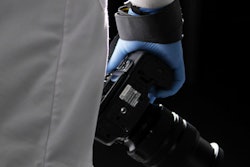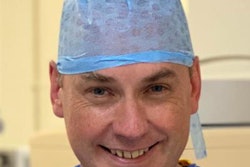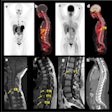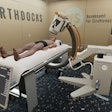
A U.K. investigation into why the radiology report of a patient who eventually died lay unseen by an oncologist for six days has found that there was a failure of the system to ensure unexpected findings are seen immediately by clinicians, national and local media outlets have reported.
John Gittins, senior coroner for North Wales East and Central, said he was "disappointed" that important changes in procedures had not been formally adopted at the Glan Clwyd Hospital in Bodelwyddan, North Wales, until December 2021 -- seven months after the patient's death. He was "dumbfounded" to hear the new system was only now being audited to see whether the changes were working, stated a report posted online by BBC News on 5 May.
Patient death
The patient who died was Trevor Reynolds, 79, a retired heavy goods vehicle driver from Abergele. He received chemotherapy for cancer of the esophagus in February 2021 and returned to the hospital for a follow-up CT scan on 3 May 2021, noted an article posted on 4 May by the Rhyl, Prestatyn & Abergele Journal.
Consultant radiologist Dr. Phillip Travis reported that while the cancer treatment appeared to be successful, the scan showed a large clot or embolism on the lung. Travis gave the report to his secretary on Thursday, 6 May, who passed it to the secretary of oncologist Dr. Angel Garcia Alonso, who in turn put it on the specialist's desk, the newspaper reported.
Garcia Alonso told the inquest that on Friday, 7 May, he was working around 30 miles (48 km) away in Wrexham and did not return to the hospital at the weekend. He then had Monday and Tuesday off as part of his annual leave, not returning to his office until midweek.
Meanwhile, Reynolds' health worsened. After a home checkup on 10 May, he was taken to hospital in an ambulance, where he was given anticoagulation treatment. However, his condition deteriorated. Reynolds died five days later on 15 May of pneumonia and pulmonary embolism due to deep vein thrombosis, with emphysema and the treated cancer as contributory factors, according to the Journal.
Appearing as an inquest witness at Ruthin County Hall, Denbighshire, Wales, on 4 May, Garcia Alonso noted that if he had seen the report sooner, he would have started anticoagulation treatment without delay and the patient's chances of survival would have been higher, the newspaper reported.
It was disclosed at the inquest that protocols have since been changed to ensure that unexpected and urgent findings were seen immediately by clinicians, but Gittins said it was unacceptable that it had taken from May to December to implement the new system and that an audit of its effectiveness still had not been completed. Gittins added that he was not satisfied that there was no risk of future deaths.
New protocol for reports
Ellen Davies, an administration manager for the hospital, presented the new protocol for reports, which was formally adopted in December and which medical secretaries are now following. Davies explained how it was now more robust and ensured other senior clinicians can be contacted if a consultant is not available to be made aware of urgent cases.
However, senior coroner Gittins was baffled as to why it had taken seven months to implement the protocol and why results still hadn't been assessed 12 months after Reynolds' death. He recorded a narrative conclusion and issued a report to the Betsi Cadwaladr University Health Board, the Journal stated.
 Glan Clwyd Hospital, Rhyl. Photo courtesy of Betsi Cadwaladr University Health Board.
Glan Clwyd Hospital, Rhyl. Photo courtesy of Betsi Cadwaladr University Health Board."It is more than frustrating it takes so long for something to change," Gittins said, noting that, in line with the evidence provided, if the treatment for the clot had been started sooner, Reynolds' chances of survival would have been greater.
On the balance of probabilities, it is likely that Reynolds would not have died on 15 May 2021 if the results of the scan had been acted upon when reported by the radiologist on 6 May, concluded.
Garcia Alonso told the inquest that he had discussed the scan results during a phone consultation on 6 May but had not yet seen the results, as they were not on the computer system, BBC News reported.
In February 2022, an ultimatum was issued to Betsi Cadwaladr University Health Board to improve vascular services. If it failed to do so, it could be put back into special measures, warned Eluned Morgan, Health Minister for Wales.



















